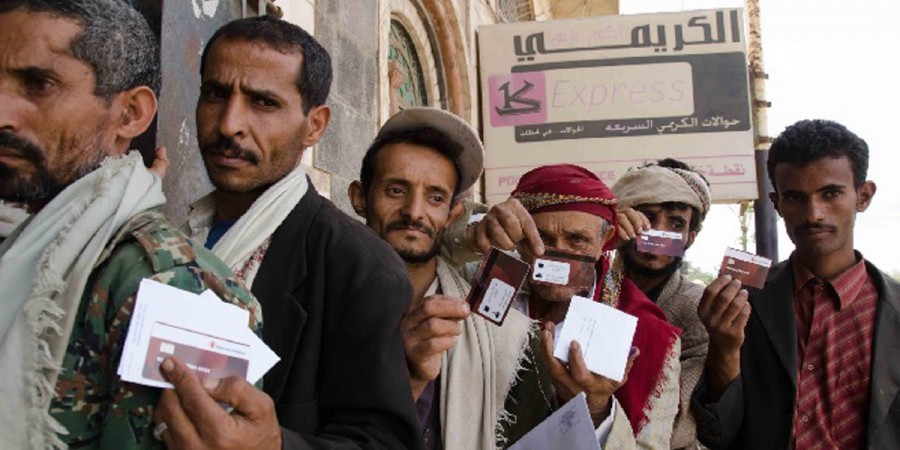As world leaders from the public and private sectors prepare to convene in Istanbul for the first-ever World Humanitarian Summit, I am reminded of the responsibility we all bear to create solutions to address the world’s most pressing challenges. News of the latest natural disaster or political unrest adds to the steadily growing need to ensure that those who require aid will be able to receive it in the most efficient way possible.
A direct outgrowth of the UN’s High-Level Panel on Humanitarian Financing – along with work by DFID’s Cash Panel and other thought leaders – is that increasing the use of digital cash in humanitarian aid provides significant benefits. In-kind and voucher-based aid might be necessary in certain situations, but digital cash is not only efficient but empowering. In the face of mounting financial pressures on those that fund and deliver aid, digital cash makes every generous contribution go further, turning the billions already given into so many more saved lives, educated children, and homes rebuilt. This is not just more aid, but better aid.
But these changes require work. Anticipating the UN Secretary-General’s call for cash-based assistance to become the preferred method to support people in emergencies, UN OCHA worked with the private sector to identify ways we can help. We have many lessons learned that we can share, new technologies to explore, and a deep desire to be active members of our communities. These conversation identified several major areas of partnership.
One of those is a global, multi-year initiative on Humanitarian Data and Identity. MasterCard is happy to act as coordinator of participants from the private sector, NGOs, the UN, academia and beyond to tackle an agenda built on three project areas:
• Data Protection – protecting aid recipient data through the application of best practices,
• Practical Identity – enabling humanitarian identity in an efficient and respectful way, and
• Humanitarian Know-Your-Customer – empowering recipients’ access to digital financial accounts when disasters leave them without documentation.
With nearly 50 years of history at MasterCard, our work has taught us that good innovations start with the user, in the context in which they live. Many of you know this as customer-centric design. We believe in it strongly and think it is the best way to ensure all stakeholders and touchpoints work with a clear vision of success. A simple example is that for digital aid to be accessible, the recipient must have an account. But an account requires identity. And with each stop along the way, new private data is created that must be carefully managed.
It is vitally important that we establish standards and best practices to ensure everyone has an identity that allows them access to digital aid, and the very sensitive information entrusted to all of us is managed and protected with upmost respect and professionalism. The data and identity initiative will tap into the experience of the private sector, and combine it with the wisdom of aid agencies, academics and policy makers.
Over the next several years, we will work with both public and private sector donors to fund scalable innovative approaches to these challenges. We will look for practical solutions. Ones that can be replicated. We will pursue together projects that will become best practices. Through this work we hope to strengthen and diversify the partnerships between the public and private sectors. Together we can fashion an even more client-focused approach to aid.
I am confident that together in Istanbul we will make much progress to advance the Agenda for Humanity. But the World Humanitarian Summit is just the beginning. That’s why we are joining with CGAP and UNCDF to co-host a side event at WHS, Leveraging Digital Innovation in Humanitarian Response to Build Resilience (Tuesday, May 24 at 11 a.m.). This conversation among government officials, NGO and UN agency leaders with the private sector will explore how digital cash can be a key component of a resilient future. We will look at not just “what” is success but how we collectively create it. And it will remind us that in our effort to make aid more efficient and efficacious we can’t forget that basics are important – things like privacy, identity, and empowerment.
Let’s not waste this opportunity to come together and make a real impact. There’s too much at stake.


Comments